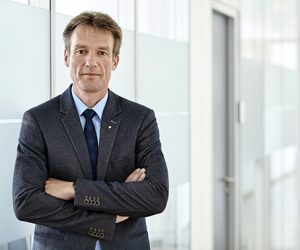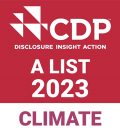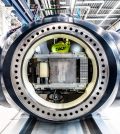Renewables and materials cycle in Ensinger’s climate strategy

Renewables and recycling of materials are key elements of Ensinger’s climate strategy, aimed to reduce and gradually eliminate the company’s greenhouse gas (GHG) emissions coming from the operations of the high performance plastics processor.
As its first step, the climate strategy now adopted by Ensinger envisages gaining a comprehensive overall picture of the company’s worldwide GHG emissions. On the basis of this, during the course of the current business year the company will decide on its reduction goals. Balancing and target setting shall take place in accordance with international standards and in line with the requirements of the Paris Agreement on climate change. The intention is to submit the reduction goals to the Science-Based Target Initiative, an independent organisation for the targeted management of activities, and to have these approved.
 The GHG reduction measures derived from the targets chiefly address energy management and material resources. For example, the proportion of purchased and self-generated electricity that comes from renewable energies is to be increased step-by-step. In addition, more and more materials will be integrated into a material cycle. Ensinger has already carried out some important spadework here, since a robust energy and environmental management system has long since been established. Working together with the company ClimatePartner, a CO2 balance sheet covering two years has been prepared. The percentage of electricity obtained from renewable sources has been continuously increased, and at the Cham plant, a switch to green electricity is being made this business year, which will meet the entire power requirement. Similarly, the proportion of recycled material used and prepared in house has recently been significantly increased.
The GHG reduction measures derived from the targets chiefly address energy management and material resources. For example, the proportion of purchased and self-generated electricity that comes from renewable energies is to be increased step-by-step. In addition, more and more materials will be integrated into a material cycle. Ensinger has already carried out some important spadework here, since a robust energy and environmental management system has long since been established. Working together with the company ClimatePartner, a CO2 balance sheet covering two years has been prepared. The percentage of electricity obtained from renewable sources has been continuously increased, and at the Cham plant, a switch to green electricity is being made this business year, which will meet the entire power requirement. Similarly, the proportion of recycled material used and prepared in house has recently been significantly increased.
“We are confident that in a few years it will be possible for us to eliminate, worldwide, the company’s directly influenceable emissions – affirms Oliver Frey, member of the Management Board and responsible for developing the climate strategy at Ensinger -. Our aim is to manage the company in a climate-neutral way, if possible without needing to use external offset schemes”.
Finally, the commitment of the company in fighting the climate change also involves its products portfolio. Ensinger has been indeed a pioneer in climate protection, deploying efficient insulating solutions for windows, doors and façades, to conserve energy in buildings and thereby lower CO2 emissions. A contribution is made here by the plastic insulbar insulating profiles, which are used as thermal breaks between the inner and outer shells of aluminium frames.The first series-produced thermal insulating bars for metal windows in Ensinger dates back to 1977. In 2013, the company was then the first manufacturer to launch insulbar RE, an insulating profile made from recycled material that combines energy efficiency and sustainability. In the meantime, the portfolio has been expanded to include insulbar RE-LI, a profile made of foamed, unmixed recycled PA 66.
Contenuti correlati
-
Transparency on climate change, SKF recognized with ‘A’ score from CDP
SKF has received an ‘A’, the top Climate Change rating available from CDP, the global non-profit that runs the world’s largest climate and environmental disclosure system for companies, cities, states and regions. Based on data reported to...
-
Emissions reduction targets of SKF approved by SBTi
The Science Based Target initiative (SBTi) has verified SKF’s net-zero target by 2050, validating both SKF’s near and long-term science-based emissions reduction targets. As the global body enabling companies and financial institutions to set ambitious emissions reductions targets...
-
Platinum medal in sustainability to SKF from EcoVadis
SKF has achieved a Platinum Medal from EcoVadis, one of the world’s most trusted providers of sustainable ratings for use in supply chains. This is the third year SKF has been awarded the Platinum medal and now...
-
Shaping the Future 2030 vision announced by Omron
Omron has announced its new long-term vision for fiscal 2030 and a three-year medium-term management plan, with the objective to strengthen the pace and extent of worldwide sustainable development. The vision strives to solve more diverse social...
-
Emission reduction targets SBTi science-based for Atlas Copco
Starting with 2022, the emission reduction targets of Atlas Copco will be validated by the Science Based Target Initiative (SBTi), an initiative created by CDP (the United Nations Global Compact), by WRI (World Resources Institute) and the...
-
Schaeffler Group to be climate neutral by 2040
The Schaeffler Group announced it will be operating as climate-neutral company from 2040. This objective covers the entire supply chain and is underpinned by ambitious mid-term sustainability targets. The Schaeffler Group is therefore accelerating the pace of...














